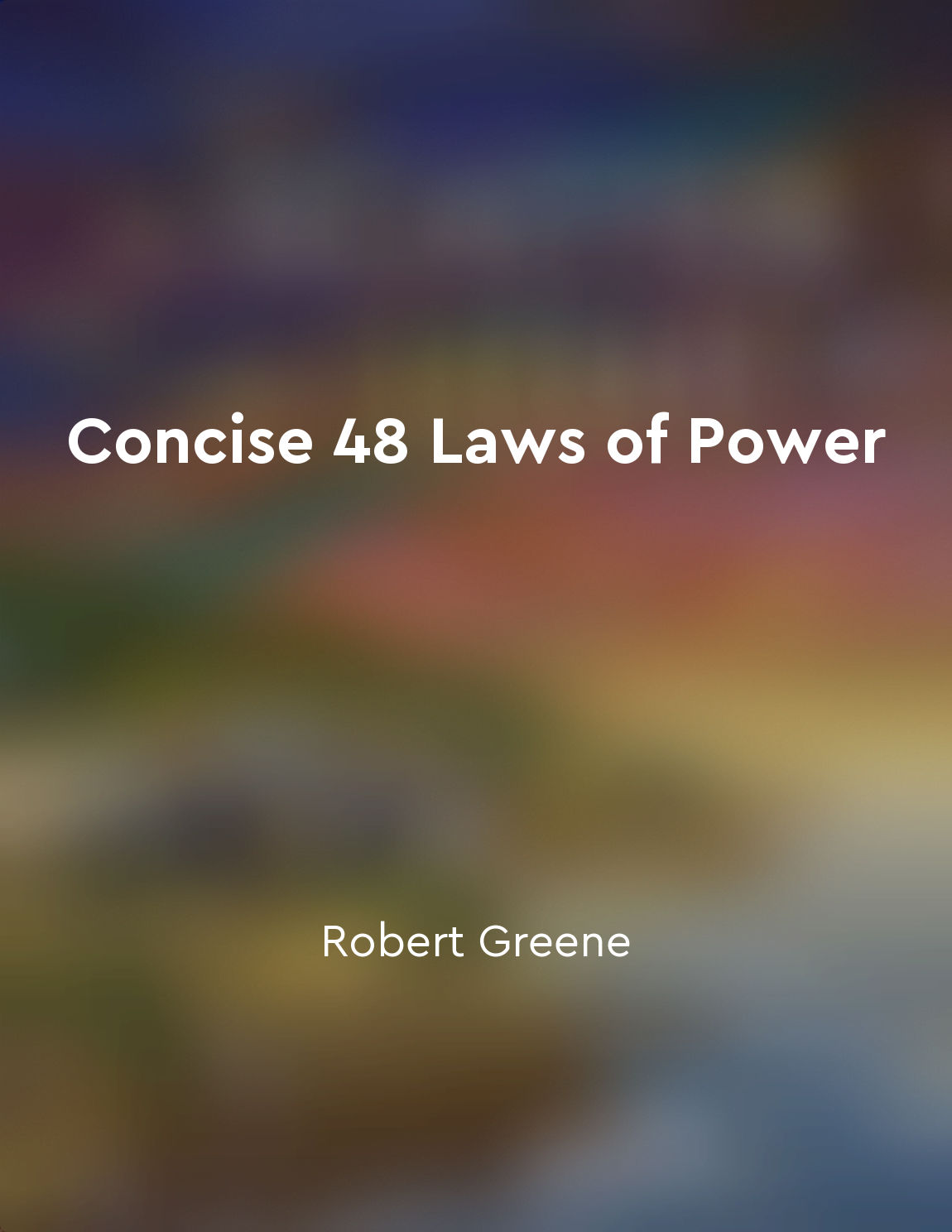The exercise of power is subtle but pervasive from "summary" of Discipline and Punish by Michel Foucault
The exercise of power is not always overt or easily recognizable. It does not always involve explicit commands or physical force. Rather, power can operate in subtle ways, shaping and controlling individuals' behavior without their awareness. This subtle exercise of power can be found in various social institutions and practices, working through norms, expectations, and disciplinary techniques. Power is pervasive, permeating every aspect of society and individuals' lives. It is not confined to specific institutions or individuals but is diffused throughout society, shaping relationships and interactions at all levels. This pervasiveness of power means that it can influence even the most mundane aspects of everyday life, regulating behavior and enforcing conformity in subtle ways. One of the key mechanisms through which power is exercised is discipline. Discipline operates by creating systems of surveillance, evaluation, and control that regulate individuals' behavior and shape their self-perception. Through disciplinary techniques, individuals are trained to internalize social norms and expectations, to monitor and regulate their own behavior, and to conform to societal standards of conduct. Disciplinary power operates through a variety of institutions and practices, including schools, prisons, hospitals, and the military. These institutions use techniques such as hierarchical observation, normalizing judgment, and examination to discipline individuals and produce docile, obedient subjects. By subjecting individuals to constant surveillance, evaluation, and correction, disciplinary power enforces conformity and maintains social order. The exercise of power through discipline is not limited to specific institutions but is a pervasive feature of modern society. It operates through a network of disciplinary mechanisms that regulate behavior and shape individuals' subjectivity. This subtle and pervasive exercise of power works to maintain social order, enforce conformity, and produce compliant subjects who internalize societal norms and expectations.Similar Posts
Our thoughts and behaviors are greatly influenced by those around us
In social situations, our behavior is often shaped by the people around us. This phenomenon is known as social influence, and i...
Social norms impact individual behavior
In understanding how culture shapes human behavior, it’s essential to consider the crucial role of social norms. These are the ...
The disciplined mind is a powerful force for change
The disciplined mind is a powerful force for change. When we think about discipline, we often associate it with strict routines...
Success is earned, not given
In a world where everyone is searching for a shortcut to success, it's important to remember one simple truth - success is not ...

Use your enemies for your own benefit
When you find yourself faced with enemies, do not let fear or anger cloud your judgment. Instead, view them as opportunities fo...
The pursuit of power can lead to isolation and alienation
The desire for power can be all-consuming. It can consume a person from the inside out, leaving them isolated and alienated fro...
Selfover others
The principle of Selfover others is at the core of utilitarianism, which asserts that each individual should prioritize their o...
Behavioral economics: understanding decisionmaking processes
Behavioral economics dives deep into the fascinating world of decision-making processes, shedding light on the intricate mechan...
The masses hold the true power in society
The power that rulers hold over their subjects is not inherent, but rather granted to them by the masses who submit to their au...
Use discipline moments as opportunities for growth
When faced with a challenging behavior from a child, it can be easy for parents to react impulsively and emotionally. However, ...
